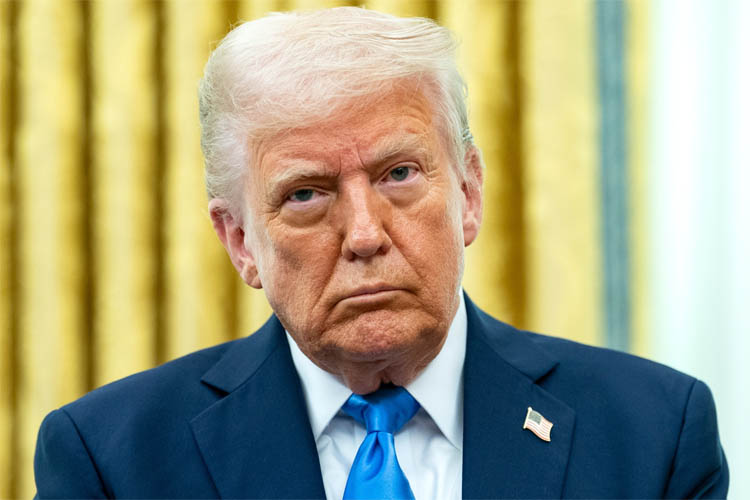News Flash
News Flash

WASHINGTON, March 30, 2025 (BSS/AFP) - US President Donald Trump said Sunday he was "very angry, pissed off" with Russian leader Vladimir Putin, NBC reported, marking a sharp change of tone as Washington seeks to end the war in Ukraine.
NBC's Kristen Welker said Trump had called her to express his fury over Putin questioning Ukrainian President Volodymyr Zelensky's future as a leader -- something that Trump himself has done.
Welker, on her NBC show "Meet The Press" on Sunday, quoted directly from an early-morning telephone conversation with the president.
"If Russia and I are unable to make a deal on stopping the bloodshed in Ukraine, and if I think it was Russia's fault... I am going to put secondary tariffs on all oil coming out of Russia," Trump said.
Trump told Welker that he "was very angry, pissed off" over Putin's recent comments about Zelensky's credibility and talking about new leadership in Ukraine.
The US president has been pushing for a speedy end to the more than three-year war since taking office, but his administration has failed to reach a breakthrough despite negotiations with both sides.
Putin rejected a joint US-Ukrainian plan for a 30-day ceasefire, and on Friday suggested Zelensky be removed from office as part of the peace process.
Trump told NBC that Putin knows he is angry, but said that he has "a very good relationship with him" and "the anger dissipates quickly... if he does the right thing."
- Russia bolstered -
Warming ties between Washington and Moscow since Trump's return to office and his threats to stop supporting Kyiv have bolstered Russia on the battlefield as it pursues its floundering invasion.
Ukraine has accused Russia of dragging out talks with no intention of halting its offensive, with fresh attacks on the northeastern border city of Kharkiv.
Six strikes hit overnight Saturday into Sunday, wounding personnel undergoing treatment at a military hospital and killing at least two people in a residential building, according to Ukrainian officials.
Russian forces also captured a village just seven kilometers (four miles) from the border of Ukraine's central Dnipropetrovsk region in their latest advance, Moscow said Sunday.
The Kremlin's troops have not crossed the boundary of the region since their offensive began in 2022, but they have been grinding towards it for months in the hope of a breakthrough.
- No ceasefire -
Putin, in power for 25 years and repeatedly elected in votes with no competition, has often questioned Zelensky's "legitimacy" as president, after the Ukrainian leader's initial five-year mandate ended in May 2024.
Under Ukrainian law, elections are suspended during times of major military conflict, and Zelensky's domestic opponents have all said no ballots should be held until after the conflict.
Trump has himself had rocky relations with Zelensky, calling him a "dictator" and clashing with him live on camera at the White House last month.
Zelensky, in his evening address on Saturday, sought to rally his country's allies against Putin.
"For too long now, America's proposal for an unconditional ceasefire has been on the table without an adequate response from Russia," Zelensky said.
"There could already be a ceasefire if there was real pressure on Russia," he added, thanking those countries "who understand this" and have stepped up sanctions pressure on the Kremlin.
Both Moscow and Kyiv agreed to the concept of a Black Sea truce following talks with US officials earlier this week, but Russia said the deal would not enter into force until Ukraine's allies lifted certain sanctions.
Explaining the secondary tariffs threat, Trump told NBC it would make it such that "if you buy oil from Russia, you can't do business in the United States."
"There will be a 25 percent tariff on all oil, a 25 to 50 point tariff on all oil," he said, without giving further details.